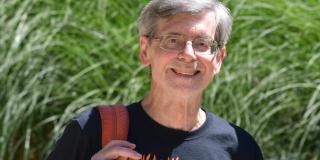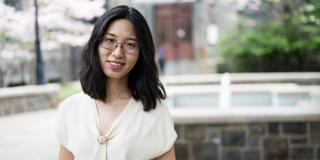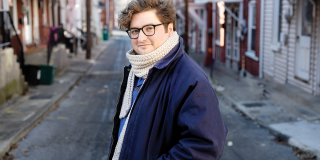
Nandini Deo took a unique approach to teaching South Asian Politics during the fall 2021 semester. Instead of learning just about the overwhelming problems that people are facing in Pakistan, Bangladesh, and India, her students were inspired by activists who are creating solutions and affecting change for the suppressed. Through a digital book project using the Google app Book Creator licensed by Lehigh, 21 students created e-books about advocates who are challenging entrenched customs such as bonded labor, child marriages, female submission, and much more. This breakdown of the students’ published story library identifies the activists, their causes, and the countries that they represent.
“I wanted the students to learn that they can be part of the solution by amplifying the stories and voices of these activists, and that they are capable of creating something that has an impact in the real world,” said Deo, associate professor of political science.
Students began work early in the semester to research their chosen activist and to contact the person directly for possible collaboration and to gain intercultural competency. About one-third of the students received responses in time to incorporate feedback.
“It was very nerve racking to reach out to someone who is essentially a random person on the internet and try to connect with them. At the same time, that communication is one reason why I was able to proceed with my project, and it was vital to the production of my activist book,” said economics major Jessica Vergona ’23, whose e-book, Unlearning, the best route to education, was edited by Manish Jain, the activist from Northern India she featured. Jain is working to radically rethink education so that community languages and cultures remain intact.
To ensure that her students mastered the material, Deo wanted the books to be intended for elementary school children comprehension.
“One great way to learn something is to teach it to someone else,” said Deo. “What it does is it prevents a student from being able to hide behind big words and abstract ideas and actually have to demonstrate that they really understand what's going on, what is the cause of the problem, and what the solutions are to that problem.”
Deo was impressed with the content that her student-authors wrote, such as explaining issues and terminology in a clear way, providing background and history about the activist and their practices in raising awareness, and discussing events such as marches or labor strikes that either hindered or furthered a cause. Supportive material included photos, videos, and graphics, and information and links to encourage the reader to consider assisting the charge by donating, signing a petition, or writing to a politician.
“Many of the students chose and wrote about activists who I had never heard about, so I got to learn from them about people and movements that I think are really exciting and important,” said Deo, whose research is at the intersection of religion, feminism, and social movements in South Asia and has written four books on related topics.
To keep students on track with project progress and requirements, Deo reviewed a first draft in mid-October. A month later, she aligned a target audience of approximately 30 families with elementary school children to review and critique books near their final form. Each family selected two to three books to evaluate and completed a feedback form that had questions derived by Deo and the class. Deo recruited these families from her own community, from other universities who had faculty with children in this age bracket, and through specific Facebook groups such as academics who homeschool their children. Suggestions included simplifying word choice and requesting more information about the activist, which sometimes was not possible if the activist had a low internet profile or did not respond to the author’s outreach.
“Many of the challenges stemmed from how difficult it was to convey complex ideas like political activism, free speech, and human rights abuses in a kid-friendly way,” said Robbie Shaff ’23, who co-authored Anupam Debashis Roy: Standing Up for Free Speech and the Environment with Spencer Howard ’22. Both Shaff and Howard are economics and political science dual majors.
The benefits of the book project went beyond learning about large political social problems in South Asia and the dynamic activists trying to uplift complex and pressing issues. Students experienced writing for a specific audience that was not their professor or peers and was outside of the college environment. They thought about the relationship between ideas and words and images on a page. They grasped new software programs and learned or elevated skills in researching, analysis, communication etiquette, and graphic design. Receiving criticism of their work prompted humility and diplomacy.
“This project has helped me begin to develop skills of communicating complex issues to people outside of college. It also allowed me to give back and have an opportunity to create something with what I’ve learned that benefits both myself and someone else beyond just a grade for the semester,” commented Misa Leeflang ’22, a global studies and Asian studies dual major who co-authored Archana Soreng & How Her Tribe Could Save the Earth with Jessica Galarza ’22, an anthropology and global studies dual major.
Each student wrote a project reflection paper and shared personal successes and recommendations for the course in constructive ways. About half of the class chose to design pages utilizing Canva, a software publishing program that offered more graphic design tool options, and then inserted the pages into Book Creator. Looking ahead, Deo is considering partnering with an art, architecture and design class or or one in computer science to have her students collaborate with students already knowledgeable in graphic design.
“I enjoyed this project and found it refreshing because it was a completely new experience for me,” said Shaff. “Most of my political science classes have finished with a long final essay or research paper, and I appreciated this opportunity to try something more artistic and new.”
“Students learn best by doing rather than being told about something,” said Deo, who is very proud of their efforts to produce high-quality work. “When you try to do something, you can do more than you sometimes think you're capable of.”
-- Dawn Thren '21P






